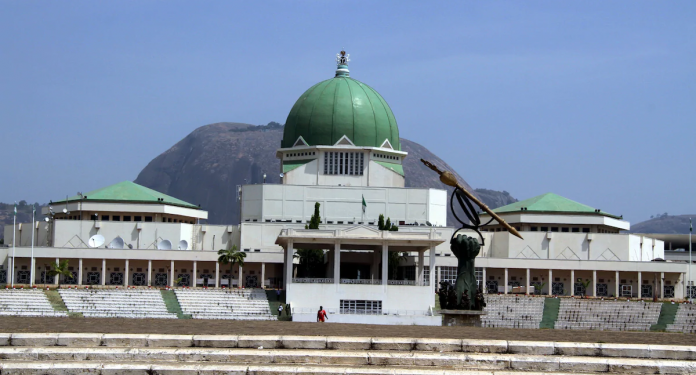- Denounces use technicalities by court
- To review INEC guidelines, 2023 election defects
- Presidency shouldn’t appoint INEC chairman, Commissioners, RECs
The National Assembly has warned that if serious measures were not taken to sanitize the electoral process, Nigerian democracy would be under serious threats as politicians who did not win election would continue stealing mandates and taking over power through wrong means.
The legislature said Nigeria should introduce mechanical politics in its electoral laws that should interprete the use of technicalities by the courts in the electoral process.
While promising to review what happened during the last 2023 election, including the guidelines of the Independent National Electoral Commission (INEC) and look at what could be done to enforce electoral laws, the legislature also raised concern over the outcome of the elections for which out of 360 members of the House of Representatives, 320 members are in court due to issues which stem from the primaries.
The chairman of the House of Representatives Committee on Science and Technology, Dachung Bagos, representing Jos South and Jos East federal constituency of Plateau State, stated these in Abuja during an Electoral Reform Roundtable with the theme, “Unpacking Nigeria’s 2023 general elections and prospects for electoral reforms”, organized by a human rights organization under the aegis of Yiaga Africa and Kofi Annan Foundation.
The Deputy Chair, Senate Committee on INEC, Abdulaziz Yaradu’a, said that the National Assembly was working on plans and learning from stakeholders to build the election process to global standards for the benefit of Nigeria’s democracy.
He however, said that one of the issues being faced by the legislature was that while elections have been conducted and completed, most of the members of the National Assembly are still in court trying to protect their mandates.
Also at the event, stakeholders in the electoral process demanded further amendment of the Electoral Act to expunge the appointment of Resident Electoral Commissioners and chairman of INEC by the Presidency.
The Executive Director of Yiaga Africa, Samson Itodo, said the roundtable was convened to conduct a post-mortem of the 2023 general elections and to seek priority areas for reforms.
He said INEC needed to be unbundled adding that the current constitutional arrangements where issues relating to the appointment of the chairman and National Commissioners were vested in the Executive needed to be reviewed.
Itodo said that the Justice Muhammadu Uwais Electoral Reforms Committee recommendations that the President should not appoint INEC chairman and Commissioners should be implemented.
“You cannot have an electoral commission that is composed of persons who are appointed by the President and, in some cases, you have the incumbents as part of a political party or leading a political party.
“So in line with the Justice Uwais’ committee’s recommendations, the review of the appointment process of Commissioners and RECs into INEC should be implemented”, he emphasized.
According to Bagos, it was high time Nigeria put its house in order and avoid the current situation where the Independent National Electoral Commission and the court would be having different results.
He said, “As a people, going forward, we should not allow democracy in Nigeria to be that which Socrates defined 2000 years ago, in which at the end of the day, democracy will even give a thief a right because democracy wants to embrace everybody.
“At the end of the day, everybody fights for his own right and at the end of the day you don’t event know what it stands for. We need to define democracy on who we are as Nigerians. With what is happening now, out of 360 members in the House of Representatives, 320 are in court due to issues from the beginning of the process, not at the end or middle of the process.
“Basically, ours is to review issues that happened during the past election and to look at what can be done to enforce those laws and make guidelines to turn them into law, because there is a difference between guidelines and the law.
“So we’re going to review INEC guidelines, we’re going to review all these issues that Nigerians have problems with during amendment. We will now make them to be a law that it shall be. So for once it’s now a law. It’s no longer a guideline. Nobody will be able to change it at the dying minute. So these are issues that collectively, we’re all going to look at.”
“I don’t know where is the renewed hope. Maybe as we are reading mechanical engineering, we should have another topic of mechanical politics because at the end of the day with all the laws that we pass in the National Assembly, someone interprets it against the way he passed it through technicalities.
“So, there’s need to start how we can read mechanical politics so that we can understand the technicalities by how our laws are being interpreted against the way we passed the law and it is sad.”
The Senior Advisor and European Union Representative in Kofi Annan Foundation Sebastian Brack, said Nigeria is not just a key country for West Africa, but Africa as a whole.
He said given all the pressures on democracy facing the world, Nigeria’s successful democratic experiment is a priority.
“This particular roundtable is looking at how we can improve the situation for the next elections in a constructive and forward looking way”, he said.
The Special Adviser to the INEC Chairman, Prof. Mohammed Kuna, said that although elections are important, they are not enough in terms of deepening and consolidating democracy.
Kuna said that there was need to focus also on issues of governance issues, political accountability and conducting elections, adding that the commission was taking note them.
ENDS***





